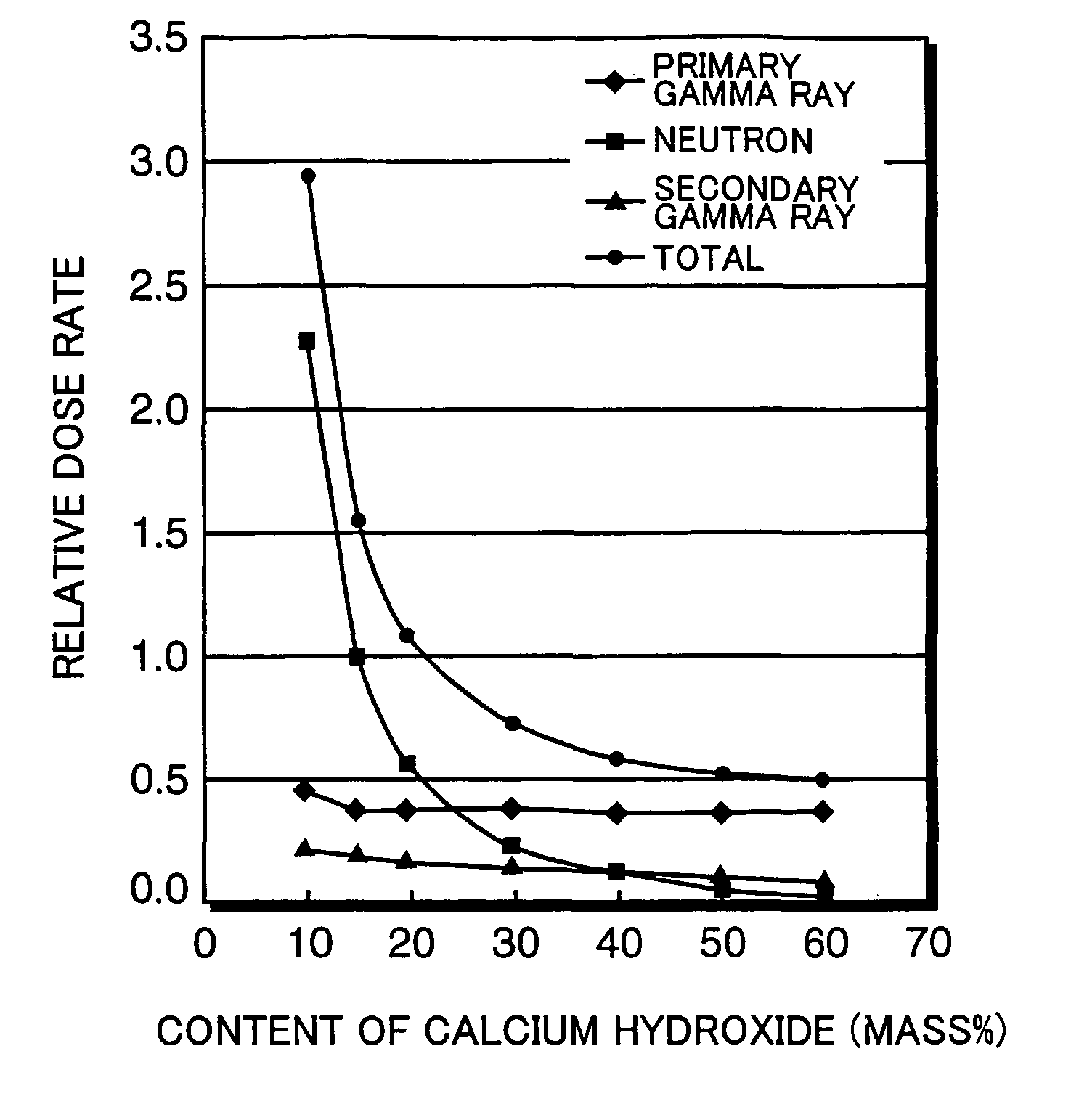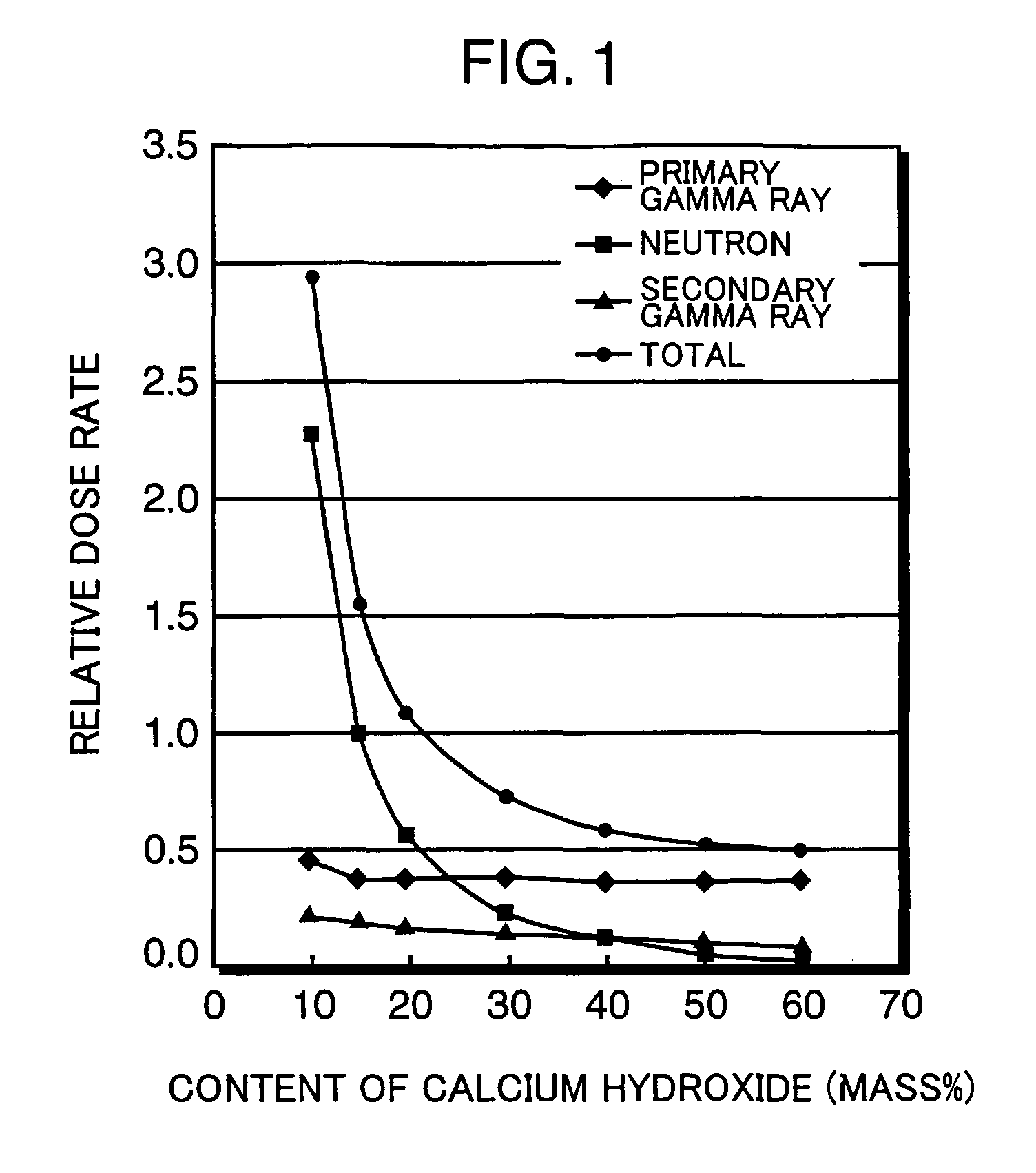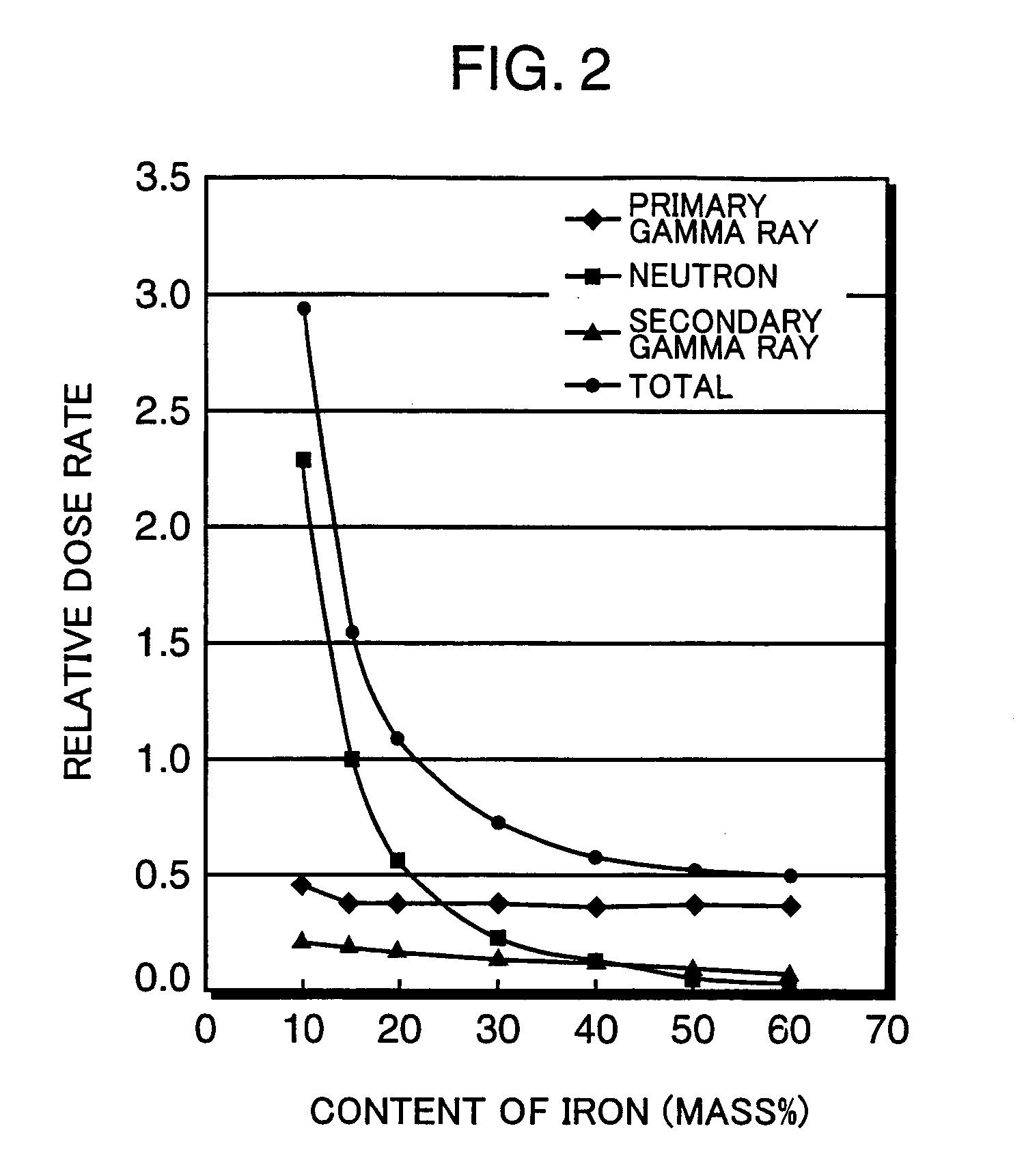Cement composite, concrete, concrete cask and method of manufacturing concrete
a technology of cement composite and concrete, applied in the field of concrete casks, can solve the problems of prior art technology posing problems related to sealing performance, poor heat resistance of concrete casks, and accelerate corrosion of steel-made canisters, and achieve the effect of high heat resistance and high shielding performan
- Summary
- Abstract
- Description
- Claims
- Application Information
AI Technical Summary
Benefits of technology
Problems solved by technology
Method used
Image
Examples
experiment 1
[0034]Assuming composites and concretes produced by blending appropriate quantities of Portland cement, silica fume, metallic material, chemical admixture and water and adding calcium hydroxide at various ratios, relative dose rates of the concrete cask were calculated on a simulation basis in Experiment 1. Here, the relative dose rate is defined as the ratio of dose equivalent rate at a central part of a concrete cask produced by using ordinary concrete to dose equivalent rate at a central part of a concrete cask produced by using the concrete of the invention.
[0035]FIG. 1 shows the relationship between the content of calcium hydroxide and the relative dose rate. In carrying out the simulation, an assumption was made that an iron shield was 20 cm thick, a concrete shield was 35 cm thick, the type of fuel was pressurized water reactor (PWR) fuel, burnup was 50,000 MWD / MTU, and cooling time was 10 years.
[0036]It can be seen from FIG. 1 that as the content of calcium hydroxide reaches...
experiment 2
[0044]Assuming composites and concretes produced by blending appropriate quantities of Portland cement, silica fume, calcium hydroxide, chemical admixture and water and adding iron (metallic material) at various ratios, relative dose rates of the concrete cask were calculated on a simulation basis in Experiment 2.
[0045]FIG. 2 shows the relationship between the content of iron and the relative dose rate. In carrying out the simulation, an assumption was made that an iron shield was 17 cm thick, a concrete shield was 41 cm thick, the type of fuel was PWR fuel, burnup was 50,000 MWD / MTU, and cooling time was 10 years.
[0046]It can be seen from FIG. 2 that as the content of iron (metallic material) reaches 10% by mass, the relative dose rate with respect to primary gamma rays becomes lower than 0.6, whereby the concrete of the invention exerts primary gamma ray shielding performance approximately equivalent to or better than that of the ordinary concrete. It can also be seen that the shi...
experiment 3
[0047]In this Experiment, composites and concretes were produced by mixing calcium hydroxide and metallic materials (a mixture of iron powder and steel fibers) with Portland cement at various mixing ratios, and the relationship between the proportions of calcium hydroxide and metallic materials in the concrete and its water content at an operating temperature of 150° C. was determined.
[0048]FIG. 3 shows results of this analysis, in which the horizontal axis represents the content of calcium hydroxide and the vertical axis represents the content of the metallic material in terms of mass ratio. If the content of a particular materials is zero, the relevant material is not contained at all. If the content of a particular material is 1, it means that the relevant material has substituted the entirety of cement. Therefore, the sum of the content of calcium hydroxide and the content of the metallic materials does not exceed the value 1 in any case. The water content is expressed by differ...
PUM
| Property | Measurement | Unit |
|---|---|---|
| heat-resisting temperature | aaaaa | aaaaa |
| temperatures | aaaaa | aaaaa |
| temperature | aaaaa | aaaaa |
Abstract
Description
Claims
Application Information
 Login to View More
Login to View More - R&D
- Intellectual Property
- Life Sciences
- Materials
- Tech Scout
- Unparalleled Data Quality
- Higher Quality Content
- 60% Fewer Hallucinations
Browse by: Latest US Patents, China's latest patents, Technical Efficacy Thesaurus, Application Domain, Technology Topic, Popular Technical Reports.
© 2025 PatSnap. All rights reserved.Legal|Privacy policy|Modern Slavery Act Transparency Statement|Sitemap|About US| Contact US: help@patsnap.com



